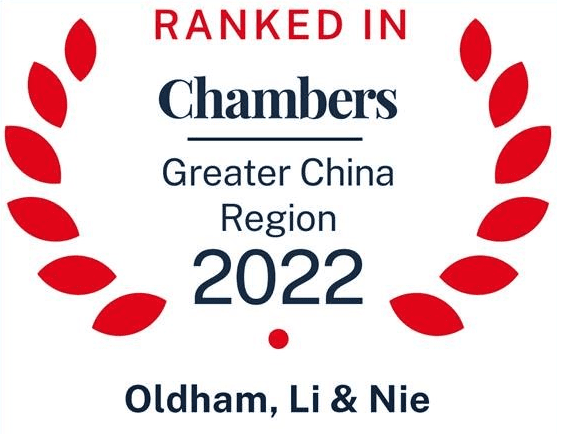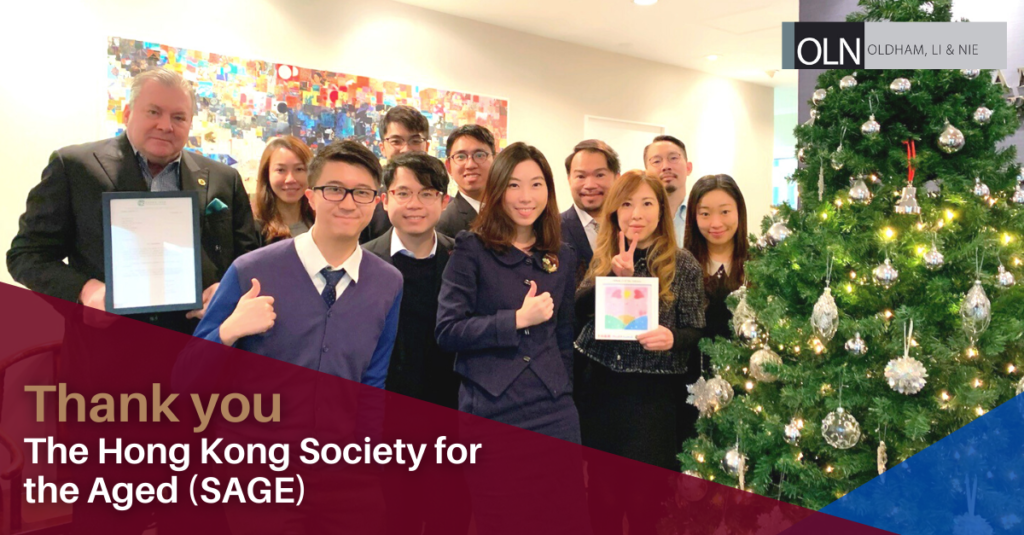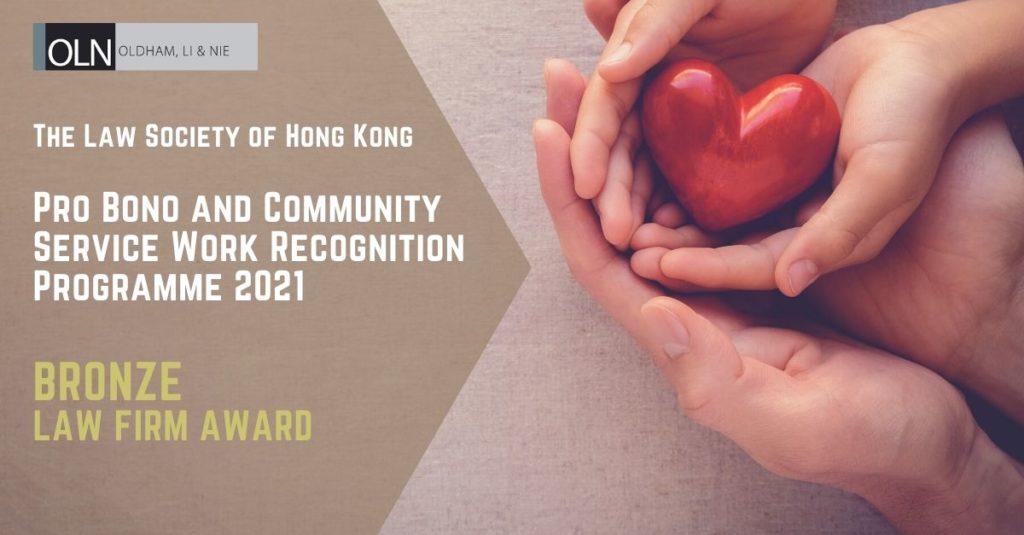We are delighted to announce that Oldham, Li & Nie has been ranked in the inaugural edition of Chambers Greater China Region 2022.
Chambers & Partners, the world’s leading provider of legal research and analysis, introduced its first-ever Chambers Greater China Region guide, ranking two Oldham, Li & Nie’s departments among the top in the region, with four lawyers earning individual rankings.
Ranked departments:
- Corporate/M&A: Independent Hong Kong Firms – Band 3
- Family/Matrimonial (International Firms) – Band 4
Ranked lawyers:
- Gordon Oldham, Corporate/M&A – Senior Statespeople
- Tracy Yip, Corporate/M&A – Band 3
- Stephen Peaker, Family/Matrimonial – Band 3
- Richard Healy, Dispute Resolution – Band 4

About Chambers Greater China Region Guide
The Chambers Greater China Region Guide brings together extensive, in-depth market analysis, and rankings of the leading law firms and professionals across all four jurisdictions of the Greater China Region. It features five exclusive chapters: China (International Firms) Chapter, Hong Kong Bar Chapter, China (PRC Firms) Chapter, China Macau and Taiwan Chapters.
 Suite 503, 5/F, St. George's Building, 2 Ice House Street, Central, Hong Kong
Suite 503, 5/F, St. George's Building, 2 Ice House Street, Central, Hong Kong +852 2868 0696
+852 2868 0696








